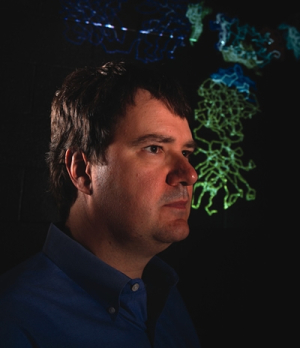Richard Willson’s efforts to develop highly sensitive disease diagnostic systems have made him one of the most accomplished researchers at the University of Houston Cullen College of Engineering. Now Willson, already John and Rebecca Moores Professor of Chemical and Biomolecular Engineering, has been named the first Huffington-Woestemeyer Endowed Chair in Biomolecular Engineering for these efforts.
The endowed chair was recently established thanks to generous gifts totaling $2 million from supporters Ronald and Mariette Woestemeyer along with Dr. Ralph Dittman and his wife, Terry Huffington of the Huffington Foundation. The gift is intended to support research that will lead to earlier diagnosis and treatment of diseases and ultimately save lives.
Willson’s work clearly applies. Much of his work centers on using biomolecular recognition to diagnose cancer and infectious diseases.
For example: When an individual becomes ill, their blood often contains pathogenic organisms, or cancer biomarker proteins, in very small amounts. Willson and his collaborators cover micro- and nano-scale particles with specific antibodies that can bind to the pathogen or biomarker, and then build systems that can identify if even a single particle has bonded. With this approach, they are able to detect the smallest signals of the presence of a disease, which allows them to diagnose diseases in their earliest stages. He is applying this approach to a number of diseases including Norwalk and Dengue virus infections, and several types of cancer for which promising biomarkers have been identified.
“I’m honored to be named the first Huffington-Woestemeyer Endowed Chair in Biomolecular Engineering,” said Willson. “Early detection and treatment can make a huge different in patient outcomes. This appointment will help me continue to work with my collaborators to develop systems that can diagnose diseases, hopefully at a point when treatment can be most effective.”
